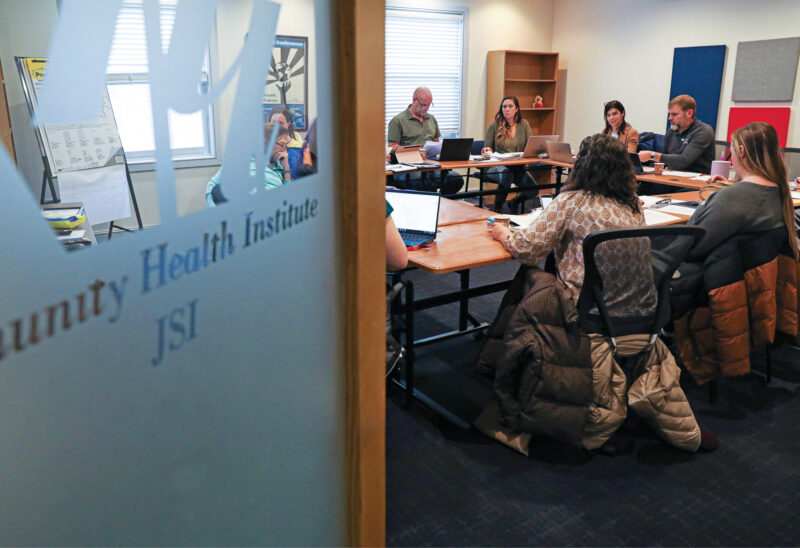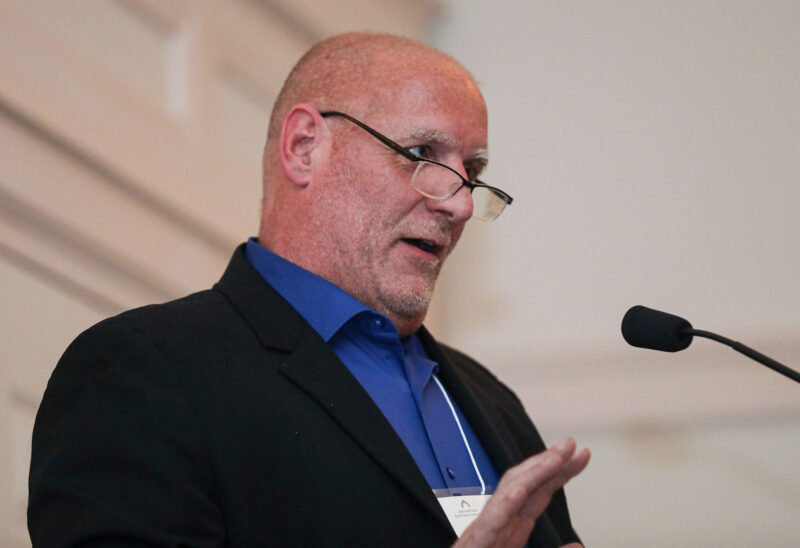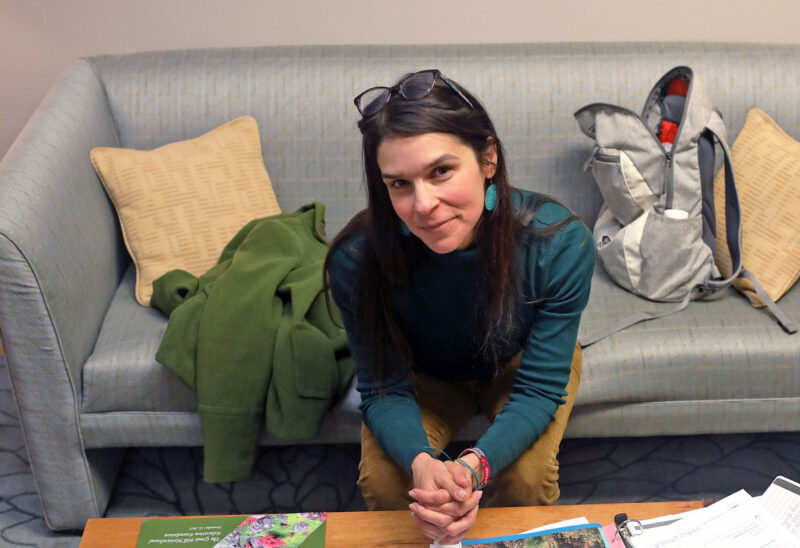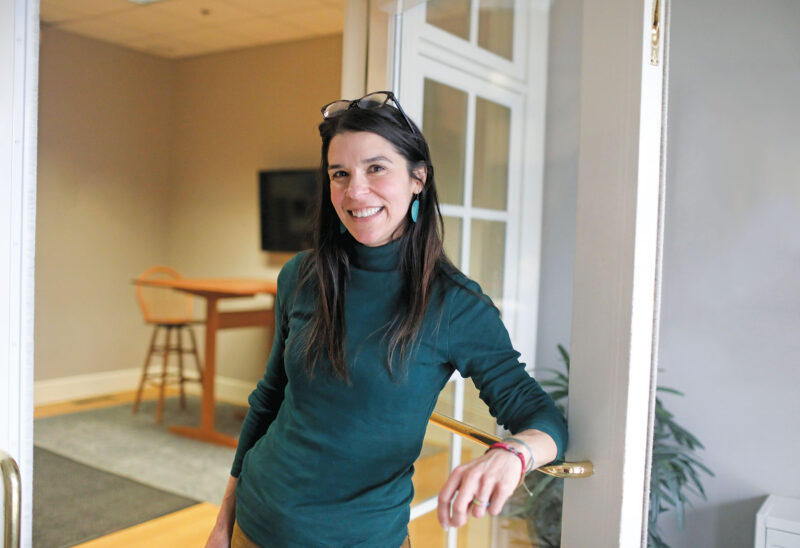CONCORD, NH (PRESS RELEASE) — An anonymous donor has made a $3 million gift to the New Hampshire Charitable Foundation to change outcomes for pregnant and newly parenting women and their babies affected by opioid and other substance use disorders.
“This gift has the potential to be transformative in New Hampshire, to dramatically change outcomes for these women and their children,” said Richard Ober, president and CEO of the New Hampshire Charitable Foundation. “We are so grateful that this donor saw this need and shared these resources to address it.”
Perinatal drug and alcohol use is an increasingly serious public health concern in New Hampshire and nationwide. Perinatal substance use disorders affect an estimated 10 to 20 percent of pregnancies in the United States, and a growing number of infants are born with Neonatal Abstinence Syndrome. Many pregnant women with substance use disorders may be using more than one substance, and many are struggling with co-occurring mental health issues, trauma, homelessness, poverty, domestic violence and more — further complicating care and treatment before and after their infants are born.
An increasing number of babies in New Hampshire are being born exposed to opiates. The majority of those babies suffer the effects of withdrawal, experience lower birth weight and other complications resulting in longer hospital stays, and may face life-long effects from exposure to alcohol and other drugs.
“While the challenges are complex, the good news is that there are steps we can take to help these women and their children get well, and be able to thrive,” said Tym Rourke, Charitable Foundation director of substance use disorders grantmaking and chair of the Governor’s Commission on Alcohol and Drug Abuse Prevention, Treatment, and Recovery. “There is a lot of good work being done around the state, and this generous donation will build on that work and make a real difference for many New Hampshire moms and their kids.”
The Charitable Foundation is the largest private funder in the state addressing the disease of addiction.
The first round of grants has been made from that gift, totaling $629,000. Approximately $1 million per year in grants will be made in the areas of prevention, treatment and recovery from this gift in 2017, 2018 and 2019.
The grants were made after research and input from medical and other experts to assess needs and strategies for maximum impact.
Funding will advance both on-the-ground work and work that changes systems to be more effective in providing care for this vulnerable population — from providing residential treatment and supports to pregnant women and babies, to creating a go-to resource offering consultation and technical support to medical providers to help them better treat these patients.
A $50,000 grant to Hope on Haven Hill in Rochester will help provide high-quality residential care to pregnant and newly parenting women. Eight women and their children live there now, each with an individual treatment plan and each getting medical care, recovery support, parenting instruction and other services for up to a year.
Courtney Tanner is the Hope on Haven Hill executive director. “At Hope on Haven Hill, our team has the privilege of working with resilient women. We are resources to these brave women working on their recovery and learning to become better mothers,” she said. “Any support like this has the ability to make a difference for a mom who is hopeless to get hope back. It means being able to watch women get stronger and their children thrive.”
A $194,000 grant will help Dartmouth-Hitchcock Medical Center in Lebanon, a state and national leader in the work of perinatal addiction treatment, create a Perinatal Addiction Center of Excellence, serving patients and providers statewide. The medical team there will further develop best practice models of care, support multidisciplinary professional education, conduct targeted research, and offer provider-to-provider consultation.
“We feel that one of our obligations is to help other practices in the state care for this population,” said Dr. Julia Frew, a psychiatrist and medical director of the Perinatal Addiction Treatment Program at Dartmouth-Hitchcock. “We recognize that, particularly in a rural state like New Hampshire, it’s not practical for all women in the state to travel to our program, and feel it is better for them to be cared for in their own communities.”
The grant will also fund the expansion of the Northern New England Perinatal Quality Improvement Network’s “Toolkit for the Perinatal Care of Women with Opioid Use Disorders” to include alcohol use disorders and promote consistent, evidence-based practices in the care of pregnant women and their infants. NNEPQIN, housed at Dartmouth, is a broad consortium of groups working together on quality improvements in perinatal health.
Dartmouth-Hitchcock has been a longstanding partner of the Foundation in its effort to implement evidence-based screening protocols to address substance use among young people and pregnant women in New Hampshire, and this support will help to implement such protocols more widely in maternity care settings.
In addition, grants were made to the following organizations:
- An $82,000 grant to Memorial Hospital in North Conway will support the “A New Life” program to improve outcomes for substance-involved pregnant and newly parenting women and their babies. The “A New Life” program, begun in 2016, provides services that are unavailable elsewhere in the area, including medication-assisted treatment and weekly group recovery supports during pregnancy and through a child’s first year.
- An $85,000 grant to the Community Health Institute will update knowledge about the prevalence of Neonatal Abstinence Syndrome and Fetal Alcohol Spectrum Disorders in New Hampshire, building on substance use disorders research that the Foundation had supported in the past. Information will be gathered about perinatal provider knowledge and practices, access to referral and treatment resources, and availability of support services. This project will assemble current statewide and regional data to identify gaps and barriers to care for substance-involved pregnant and parenting women.
- A $95,000 grant to the Partnership for a Drug Free NH will lay the groundwork for a multiyear maternal health public information campaign designed to prevent substance misuse, including alcohol consumption, by women who are pregnant or who could become pregnant.
- A $70,000 grant will help Families in Transition hire a full-time child and family therapist to provide family-centered, evidence-based services and interventions for pregnant and parenting moms with young children. FIT runs the Family Willows Substance Use Treatment Center in Manchester, which offers intensive outpatient care and seeks to reduce common barriers to SUD treatment faced by many pregnant and parenting mothers. FIT is also developing a new Recovery Housing Program for women, including those with children, who are in the early stages of recovery.
- A $50,000 grant will support a part-time social worker at Concord Hospital to help pregnant and newly parenting women and their babies. This new role will help identify optimal care and supports for moms affected by substance use disorders and their newborns, using a new screening tool to assess how infants born with Neonatal Abstinence Syndrome sleep, eat, and respond to consoling; and connect pregnant women to the appropriate care and services to facilitate a safe transition to the community for these moms and their babies upon release from the hospital.
- A $3,000 grant will meet a critical need for basic supplies for women and infants being treated at the Cynthia Day Family Center at Keystone Hall, a substance use residential treatment for pregnant, post-partum, and parenting women in recovery. The funds will buy diapers, bedding, toiletries, car seats, strollers, baby monitors and other needed items.
To learn more about the Foundation’s investments in substance use disorder prevention, treatment and recovery, please visit www.nhcf.org/sud or contact Tym Rourke at gvzbgul.ebhexr@aups.bet or 603-225-6641 ext. 295.
About the New Hampshire Charitable Foundation
The New Hampshire Charitable Foundation is New Hampshire’s statewide community foundation, founded in 1962 by and for the people of New Hampshire. The Foundation manages a growing collection of more than 1,800 funds created by generous individuals, families and businesses, and awards nearly $40 million in grants and scholarships every year. The Foundation works with generous and visionary citizens to maximize the power of their giving, supports great work happening in our communities and leads and collaborates on high-impact initiatives. For more information, please visit www.nhcf.org or call 603-225-6641.

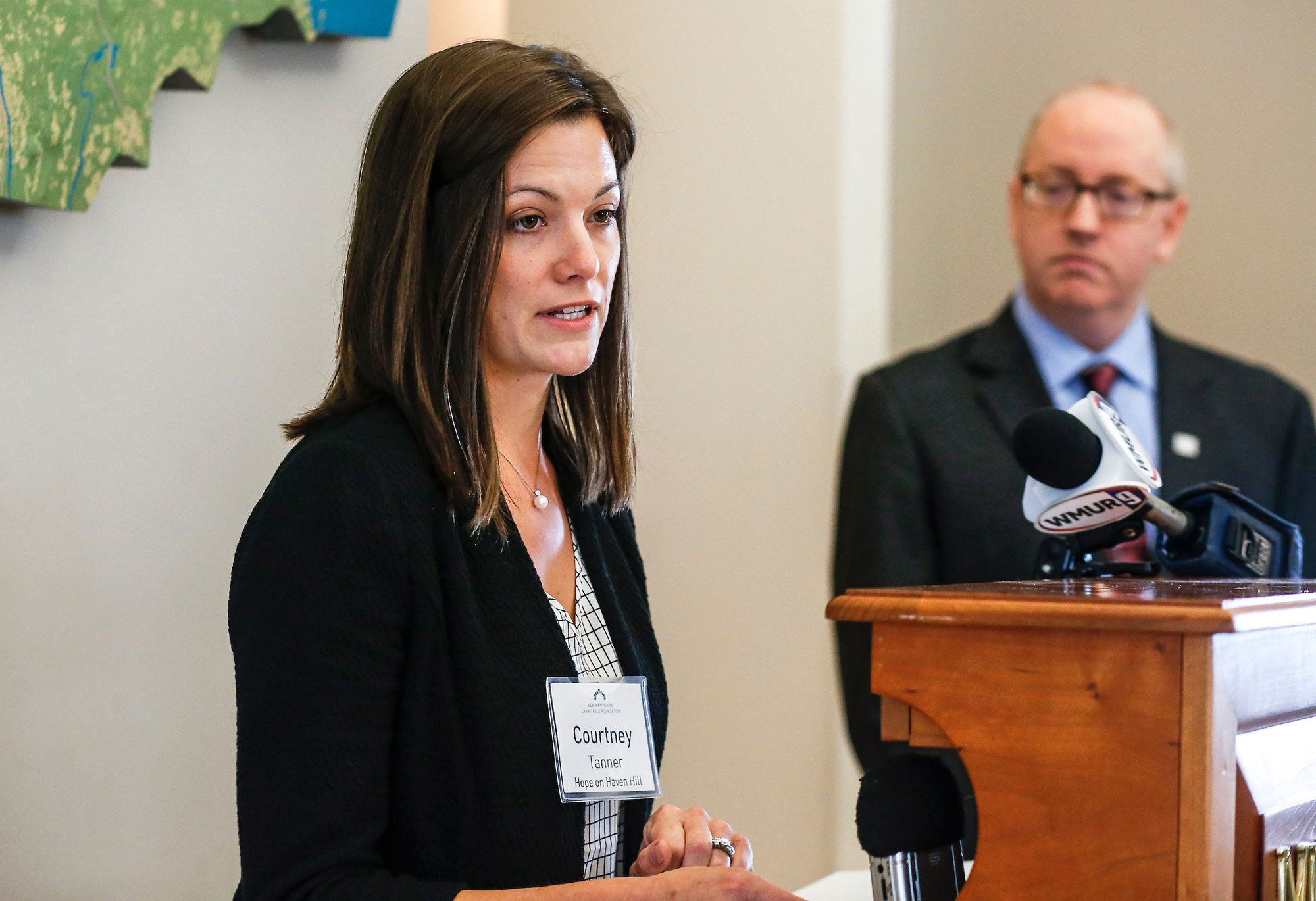






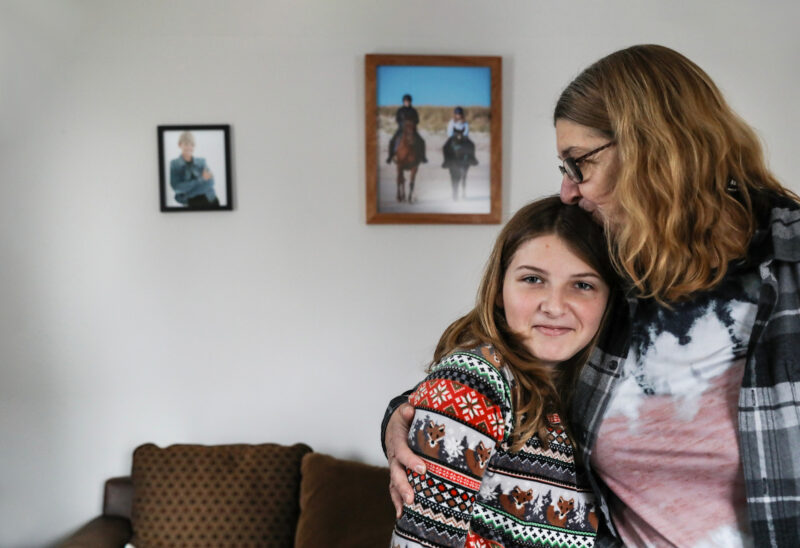

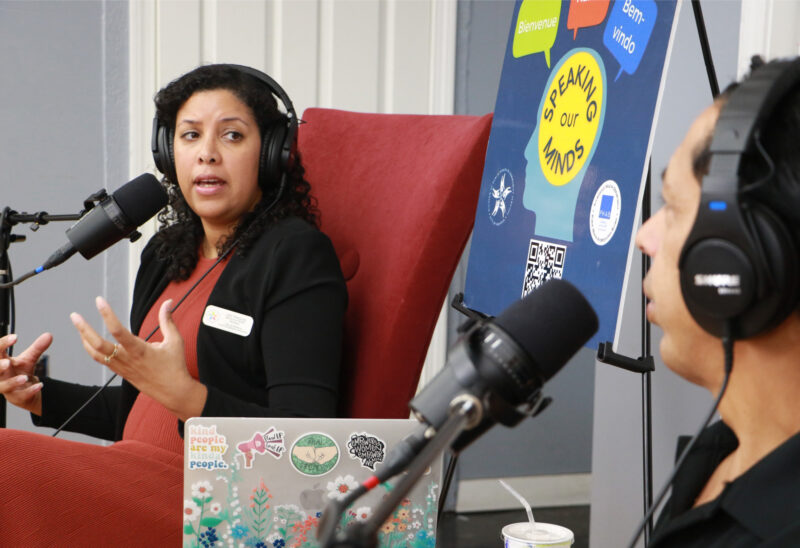
![Charitable Foundation President Dick Ober [Photo by Cheryl Senter]](https://www.nhcf.org/wp-content/uploads/2023/12/dick-ober-purpose-fall-winter-2023-800x548.jpg)
